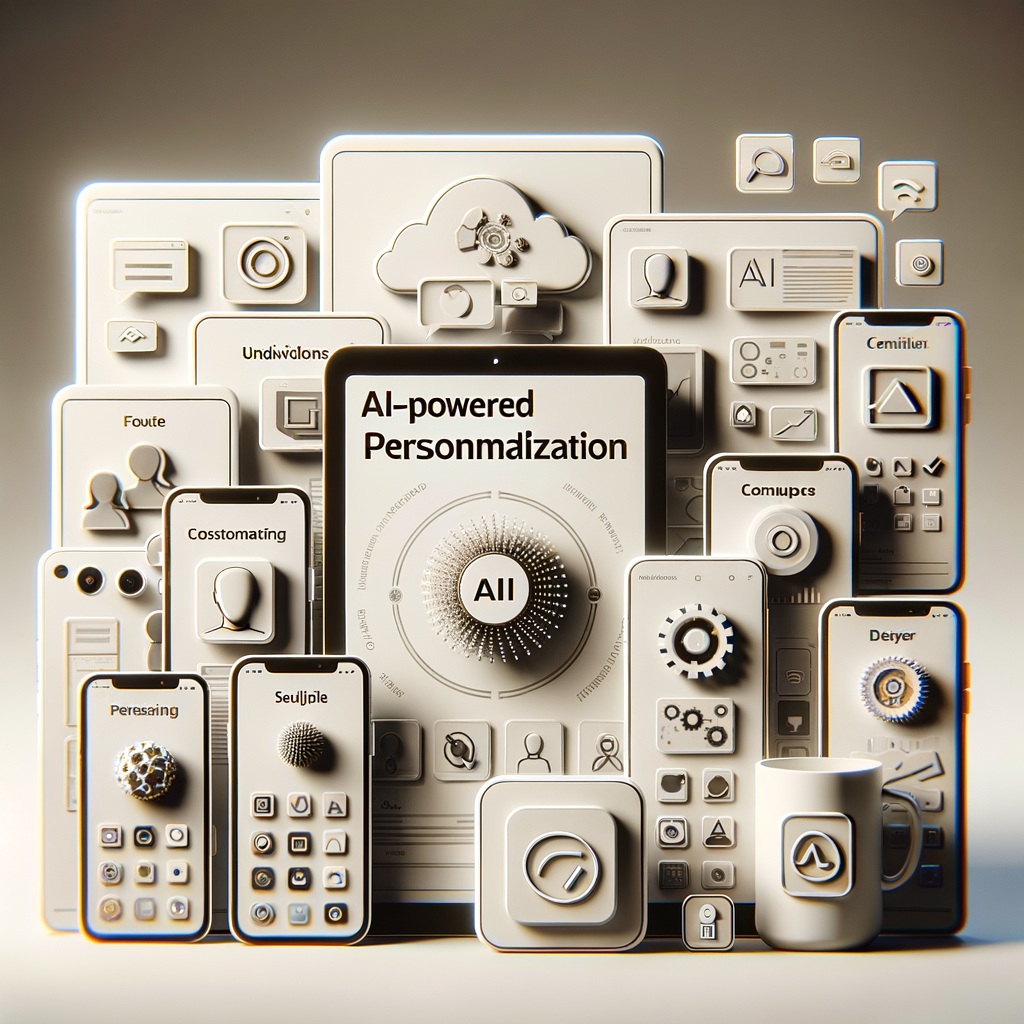
AI-Powered Personalization: Redefining User Experience Across Platforms
Explore the next frontier of AI where personalized user experiences redefine how we interact with technology. From tailored content delivery to adaptive interfaces, this blog delves into the innovative use of AI in creating deeply personalized digital environments. Understand the technologies driving these changes and the implications for both developers and users.
AI-Powered Personalization: Redefining User Experience Across Platforms
Introduction
In the ever-evolving landscape of technology, personalization has emerged as a critical factor in enhancing user engagement and satisfaction. As artificial intelligence (AI) continues to advance, its integration into personalization processes is transforming how users interact with digital content across various platforms. This article delves deep into the role of AI in personalization, exploring its impact, technologies involved, and future possibilities.
The Need for Personalization
With an overwhelming amount of information available online, users are often faced with the paradox of choice. Personalization helps mitigate this by presenting content and experiences tailored to individual preferences, behavior, and context. Such experiences not only improve user satisfaction but also increase engagement and retention rates.
AI Techniques in Personalization
AI-driven personalization leverages a range of technologies, including:
1. Machine Learning (ML) Models
Machine learning models analyze vast amounts of data to identify patterns and preferences. These models can predict user behavior and suggest relevant content or products.
2. Natural Language Processing (NLP)
NLP helps in understanding and processing human language. Chatbots, virtual assistants, and personalized content delivery systems use NLP to interact with users in a more human-like manner.
3. Collaborative Filtering
This technique aggregates user behavior data to recommend items by identifying similar user profiles.
4. Real-Time Data Processing
AI systems processing real-time data can adapt quickly to user needs and preferences, offering dynamic and personalized content.
Impacts of AI-Powered Personalization
AI-driven personalization significantly impacts both businesses and users:
- Enhanced User Experience: Users enjoy a seamless, intuitive interaction that feels tailored specifically for them, enhancing satisfaction and loyalty.
- Increased Efficiency: Businesses can target their audience more effectively, reducing costs and maximizing ROI.
- Data Privacy Concerns: While personalization relies heavily on data, it raises questions about privacy and data usage, necessitating transparent policies and advanced security measures.
Challenges and Considerations
Despite its benefits, AI personalization comes with challenges:
- Data Handling and Privacy: Balancing personalization with privacy requires thoughtful data handling strategies.
- Bias in Algorithms: AI can perpetuate and amplify biases due to historical data and existing prejudices.
- Technical Complexity: Implementing and maintaining AI systems for personalization requires significant technical expertise and resources.
The Future of AI in Personalization
The future holds immense potential for AI-driven personalization:
- Adaptive Interfaces: AI might lead to interfaces that change based on user mood and context.
- Cross-Platform Unification: Personalization will unify user experience across devices and platforms.
- Deeper Emotional Engagement: AI could enable systems capable of understanding and responding to user emotions.
Conclusion
AI-powered personalization is redefining how users experience digital interactions. By harnessing the power of AI, businesses can create highly personalized experiences that resonate with users, building stronger relationships and fostering loyalty. As these technologies evolve, the possibilities for personalization will continue to expand, promising even more innovative and user-centric digital experiences.
Keywords
- AI Personalization
- User Experience
- Machine Learning in Personalization
- Data Privacy in Personalization
- Future of AI in Personalization